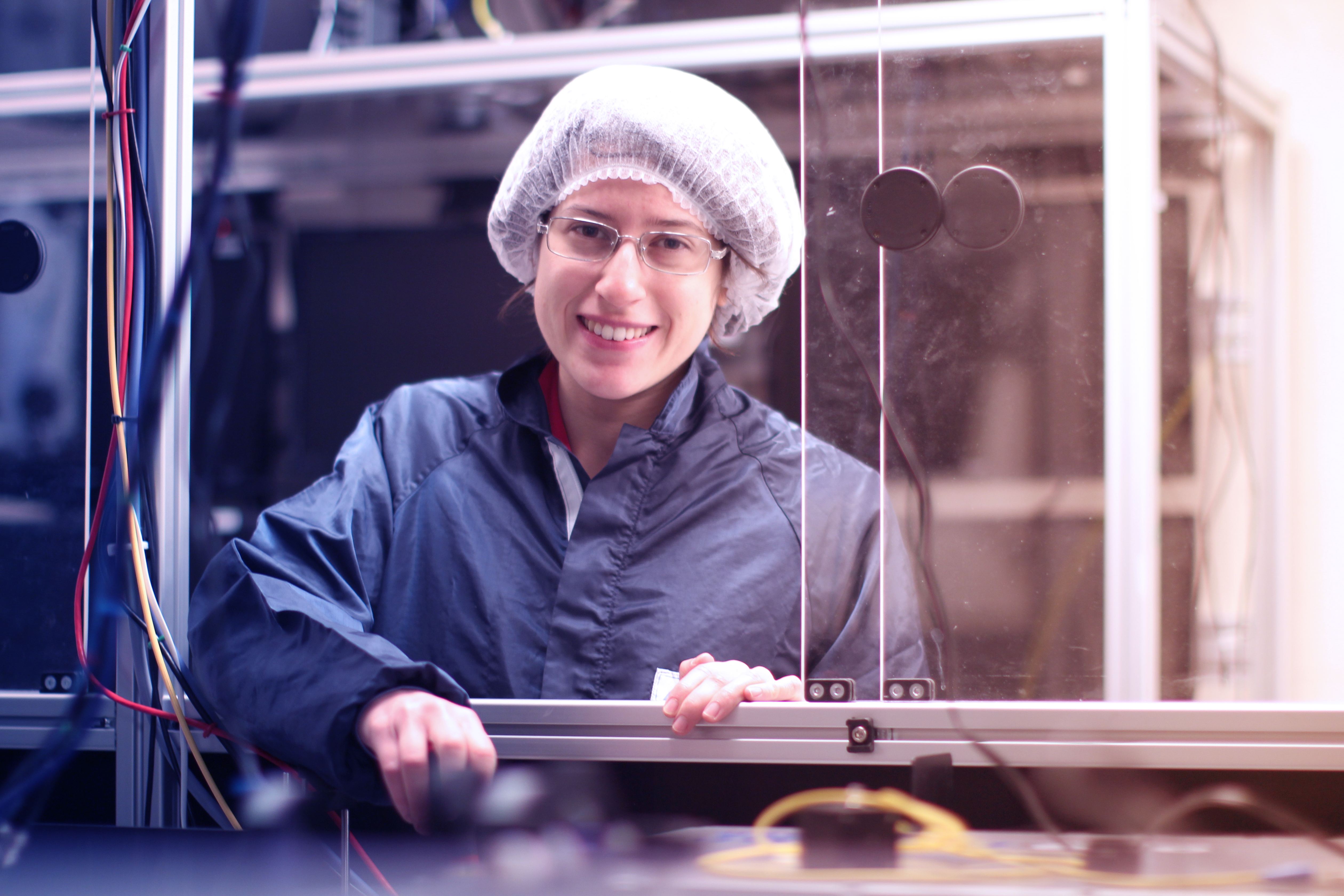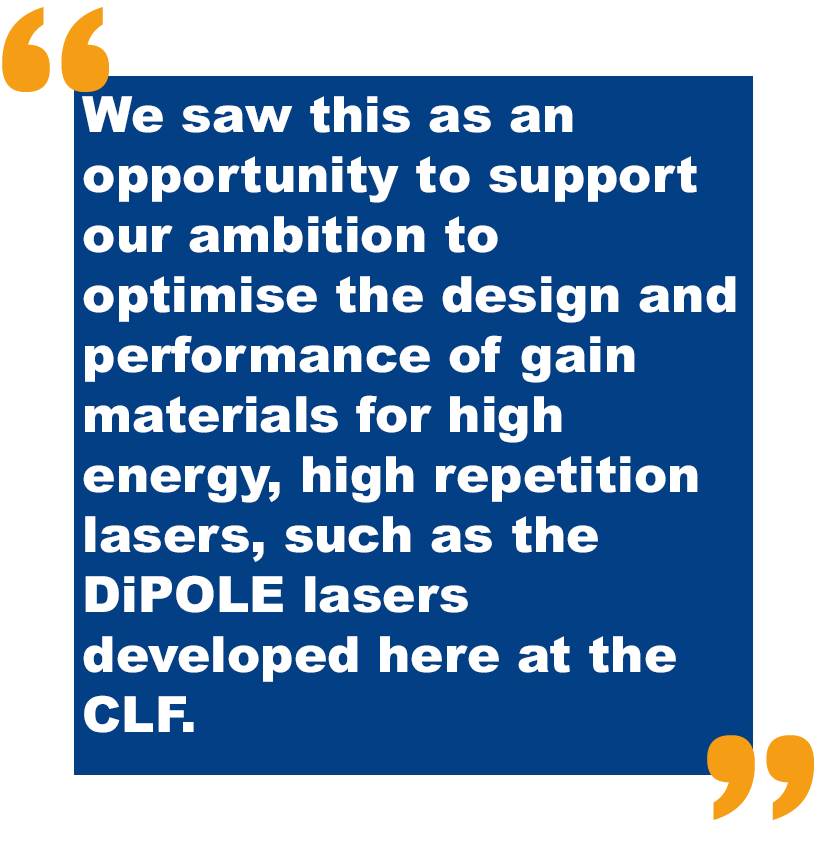The funding will support a 2-year project to develop new, more flexible techniques of sintering and manufacturing YAG-based (Yttrium aluminium oxide) ceramic gain materials for high energy, high repetition rate lasers. These new techniques can potentially lead to vastly improved laser performance and make high energy lasers like DiPOLE more suited for day-to-day use and commercialisation for a wide range of sectors, including industry (processing of materials), medicine (high-resolution imaging and novel therapies) and for clean energy production (fusion power plants)
.
(Stefania in the DiPOLE lab at the CLF)
Stefania found out about the grant scheme when researchers at the CNR Institute of Science and Technology for Ceramics (ISTEC) in Italy reached out to her. She jumped at the chance to collaborate with them on this exciting project.
“We saw this as an opportunity to support our ambition to optimise the design and performance of gain materials for high energy, high repetition lasers, such as the DiPOLE lasers developed here at the CLF," Stefania remarked.
“When I found out we had been awarded the grant, I was of course very glad for the funding to carry out this project and honoured to receive the endorsement from a prestigious institution such as the Royal Society."
 Laura Esposito from CNR ISTEC, said, “This project is a great opportunity to validate materials that can drastically improve the performances of high power lasers. I am really thankful to the Royal Society that made possible this collaboration."
Laura Esposito from CNR ISTEC, said, “This project is a great opportunity to validate materials that can drastically improve the performances of high power lasers. I am really thankful to the Royal Society that made possible this collaboration."
This project will allow to better understand and harness the opportunities offered by novel gain material manufacturing techniques. It will also allow Stefania to continue her research on laser gain materials, supported between 2018 and 2021 by the Royal Commission for the Exhibition of 1851 and now by the Royal Society.
“I am starting to think that the word “Royal" brings me luck!" Stefania jokes. “I am also very much looking forward to visiting the labs at ISTEC."
Not only is Stefania embarking on this project, but she also has a series of major projects lined up at the CLF over the next 2 years.
“I will be working on the development and commissioning of next generation DiPOLE lasers operating at 100 Hz – a factor of ten increase in repetition rate compared to previous systems."
She is leading the development of two DiPOLE 10J, 100 Hz lasers, one for the HiLASE Centre in the Czech Republic as part of the Horizon 2020 Widespread project, and one for the CLF.
With her career taking off, I asked Stefania what she does to unwind.
“I enjoy going for long walks in the countryside, reading and playing the guitar. I am looking forward to the end of this Covid crisis, when it will be again easier to travel overseas!"
Read about Stefania's other achievements here:
Mariastefania De Vido Wins MacFarlane Prize 2020
Member of CALTA team wins AILU prize 2019
Mariastefania De Vido awarded £80k fellowship by the Royal Commission
